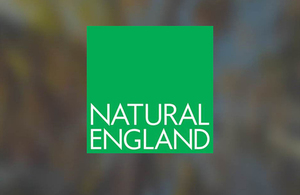Issue of buzzard licence
Natural England is providing further information regarding the issue of a licence for buzzard control.

Natural England logo
We recognise the strength of public feeling following the decision to issue a licence to control up to 10 buzzards and we are providing further context to this case.
Wildlife licences are required from Natural England for activities that will disturb or remove wildlife or damage habitats and can be granted to prevent damage to agriculture, livestock, fisheries, property or archaeology.
So far this year, we have received over 5,500 wildlife licence applications covering a variety of species. In deciding whether a licence should be granted, all applications have to be assessed in the same way against the relevant policy and within the legal framework of the Wildlife and Countryside Act 1981.
We fulfill this role as a wildlife licensing authority, alongside the range of our statutory responsibilities as government’s adviser on nature conservation.
In assessing the buzzard licence application we took into account the legislative tests and policy guidance, the evidence received from the applicant, industry guidance and scientific literature. The application was rigorously assessed with input from specialists across our organisation.
The High Court has recently considered the issues surrounding the granting of a licence to kill buzzards in order to protect livestock and given clear direction on the decision making process. This includes the need to balance the protection of wild birds against the requirement to prevent serious damage to livestock and the need to adopt a consistent approach to the interpretation of policy which applies across a number of species. Natural England has taken account of the court’s findings in reaching this decision.
The licence to control buzzards was issued to protect against serious damage to livestock. The Wildlife and Countryside Act 1981 defines livestock as any animal which is “kept for the provision or improvement of shooting or fishing”.
Our guidance says that where birds are either in pens or are significantly dependent on people they are classed as livestock. For example, where a bird remains in close proximity to a release pen and will often return to it for shelter or to roost at night, and is dependent on food put out by the gamekeeper then we usually consider it to still be livestock even if it is free-living. As pheasants are released at a relatively young age, they will be dependent on the gamekeeper for several weeks at least. Natural England revised this guidance to take account of the High Court ruling, having consulted our stakeholders.
As a public body, Natural England has to balance the public interest with the security of the individuals who apply for licences. In the interests of transparency, Natural England will shortly be making documents associated with the assessment and granting of this licence publicly available. These also include details about control methods, assessment and criteria under which the license has been granted. Any disclosed documents will be released in accordance with the Data Protection Act 1998 and therefore some details, such as personal information, may be redacted.
We would not consider licensing any activity which would adversely affect the conservation status of a species. Buzzards are now widespread in England, with over 60,000 pairs in the UK (British Trust for Ornithology). The loss of a small number of birds at the specified site will have no impact on the overall conservation status of the species.
It is illegal to kill wild birds without a licence from Natural England and anyone who suspects a wildlife crime should report details to the police.